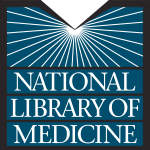- Industry: Library & information science
- Number of terms: 152252
- Number of blossaries: 0
- Company Profile:
The National Library of Medicine (NLM), on the campus of the National Institutes of Health in Bethesda, Maryland, is the world's largest medical library. The Library collects materials and provides information and research services in all areas of biomedicine and health care.
Cell or organism with missing or extra chromosomes or parts of chromosomes and thus an abnormal number of chromosomes which is not an exact multiple of the haploid number.
Industry:Biology; Chemistry
Condition resulting from insufficient intake of oxygen: symptoms include breathing difficulty, impairment of senses, and, in extreme, convulsions, unconsciousness and death.
Industry:Biology; Chemistry
Pairs or groups of individuals of identical phenotype.
Note: In twin studies, this is a condition in which both twins exhibit or fail to exhibit a trait under investigation.
Industry:Biology; Chemistry
1. A psychic craving for a drug or other substance which may or may not be accompanied by a physical dependency.
2. Reliance on a drug or other substance to maintain health.
Industry:Biology; Chemistry
Pathological condition in which the hydrogen(1+) (hydron) substance concentration of body fluids is below normal and hence the pH of blood rises above the reference interval.
Industry:Biology; Chemistry
1. Of a disease, producing no persisting harmful effects.
2. Tumor which does not invade other tissues (see metastasis), having lost growth control but not positional control.
Industry:Biology; Chemistry
Collection of internationally adopted food standards drawn up by the Codex Alimentarius Commission, the principal body implementing the joint FAO/WHO Food Standards Programme.
Industry:Biology; Chemistry
Substance which produces loss of feeling or sensation: general anesthetic produces loss of consciousness; local or regional anesthetic renders a specific area insensible to pain.
Industry:Biology; Chemistry
As applied to air and water motion, predominantly vertical motion of air or of water, induced by the expansion of the air or of water heated by the earth’s surface, or by human activity, and its resulting buoyancy.
Industry:Biology; Chemistry
Substance capable of specifically counteracting or reducing the effect of a potentially toxic substance in an organism by a relatively specific chemical or pharmacological action.
Industry:Biology; Chemistry
